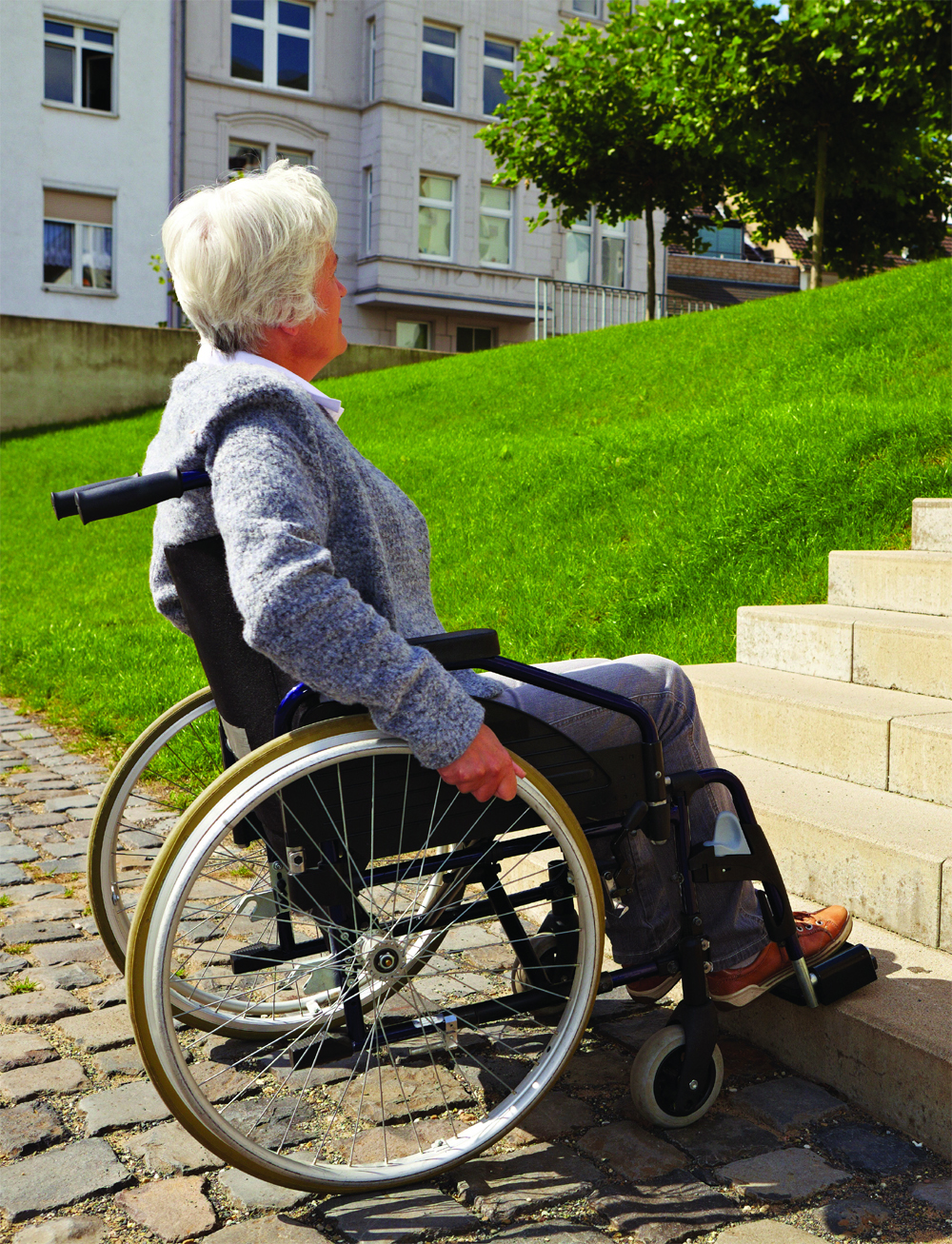Housing Discrimination Assistance
Fair Housing Contact Service investigates claims of housing discrimination and assists clients with filing discrimination complaints. Contact us if you think you’ve been a victim of housing discrimination! Fill out this form or call us at 330.376.6191.
Disability Housing Rights & Discrimination
Federal law provides the following rights to person with disabilities, regardless of whether they live in public or private housing:

Federal law prohibits discrimination against person with disabilities
It is unlawful for a housing provider to refuse to rent or sell to a person simply because of a disability. A housing provider may not impose different application or qualification criteria, rental fees or sales prices, and rental or sales terms or conditions than those required of or provided to persons who are not disabled.
Federal law requires reasonable modifications for persons with disabilities.
A reasonable modification is a structural modification that is made to allow persons with disabilities the full enjoyment of the housing and related facilities. Install a ramp into a building, lowering the entry threshold of a unit, or installing grab bars in a bathroom are examples of reasonable modification.
Federal law requires reasonable accommodations for persons with disabilities.
A reasonable accommodation is a change in rules, policies, practices, or services so that a person with a disability will have an equal opportunity to use and enjoy a dwelling unit or common space. Reserving a parking space in front of the entrance to a unit for a tenant with mobility impairment is an example of reasonable accommodation.
- Assistance animals are reasonable accommodations.
An assistance animal is not a pet. It is an animal that works, provides assistance, or performs tasks for the benefit of a person with a disability, or provides emotional support that alleviates one or more identified symptoms or effects of a person’s disability. Assistance animals perform many disability-related functions, including but not limited to, guiding individuals who are blind or have low vision, alerting individuals who are deaf or hard of hearing to sounds, providing protection or rescue assistance, pulling a wheelchair, fetching items, alerting persons to impending seizures, or providing emotional support to persons with disabilities who have a disability-related need for such support. For purposes of reasonable accommodation requests, an assistance animal is not required to be individually trained or certified. While dogs are the most common type of assistance animal, other animals can also be assistance animals.
Federal law requires reasonable modifications for persons with disabilities.
A reasonable modification is a structural modification that is made to allow persons with disabilities the full enjoyment of the housing and related facilities. Install a ramp into a building, lowering the entry threshold of a unit, or installing grab bars in a bathroom are examples of reasonable modification.
Federal law requires that new covered multifamily housing be designed and constructed to be accessible.
In covered multifamily housing consisting of 4 or more units with an elevator built for first occupancy after March 13, 1991, all units must comply with the following seven design and construction requirements of the Fair Housing Act:
• Accessible Entrance on an Accessible Route
• Accessible Public and Common-Use Areas
• Usable Doors
• Accessible Route Into and Through the Dwelling Unit
• Accessible Light Switches, Electrical Outlets, Thermostats, and Environmental Controls
• Reinforced Walls in Bathrooms
• Usable Kitchens and Bathrooms
In covered multifamily housing without an elevator that consists of 4 or more units built for first occupancy after March 13, 1991, all ground floor units must comply with the Fair Housing Act seven design and construction requirements.
For information on how to comply with the physical accessibility requirements of the Fair Housing Act, visit the HUD Fair Housing Accessibility FIRST Web site.
Become a Fair Housing Tester
What is a fair housing tester?
Fair Housing testers help ensure that people are not denied housing due to unlawful discrimination by meeting with housing providers and recording the details of their interaction.
Why become a fair housing tester?
Fair housing testing is an effective way of protecting people against housing discrimination and securing the rights established under the Fair Housing Act.
If you are passionate about civil rights, oppose discrimination, and believe that all people should have equal housing opportunity, becoming a tester will give you an opportunity to put your passions and beliefs into action.
Tester Compensation
Fair housing testers are not employees of FHCS.
Testers are paid a $50 stipend for each completed rental or sales test and $20 for each completed phone or email test. Payment is subject to change. If services are not rendered in accordance with the Tester Agreement, fees may be reduced or eliminated at the discretion of the Test Coordinator, Enforcement Coordinator, or Executive Director
Testers are utilized on an as needed basis.
Contact us if you’re interested in becoming a fair housing tester.
Tenant-Landlord Counseling

Fair Housing Contact Service provides free counseling for both tenants and landlords. It is our mission to help prevent problems between tenants and landlords by informing both parties of their rights and responsibilities.
Visit our Resources page for information regarding tenant-landlord rights and responsibilities, sample letters, etc.
To speak with a tenant-landlord counselor, call 330.376.6191 Monday-Friday 9:30am-3:30pm. Our counselors will return your call within 24 business hours.
Educational Services
Fair Housing Contact Service offers various educational services regarding fair housing, including free workshops for tenants and landlords. Our counselors are also available to answer your fair housing questions.
Educational Outreach Program
The FHCS educational outreach program is part of an ongoing effort to instruct the general public on fair housing laws and practices, and to inform the community of our activities and services. We engage landlords, realtors, and other housing providers as well as tenants, homeowners, and home-buyers through presentations, workshops, classes, and clinics.
Visit our Events page for upcoming educational events. Follow us on Facebook to receive notifications of upcoming events. Contact us if you are interested in receiving invitations to our educational events.
Engaging Community Agencies
FHCS attends many community functions and its staff members serve on numerous local committees. Local service agencies are contacted regularly through mutual referrals regarding client needs. Efforts are made to interest local journalists in reports and stories about FHCS activities and client situations. Corporate and community agencies are knit into the outreach network to ensure a wider spread of knowledge and service dissemination.
Education Through In-House Services
FHCS integrates its education efforts into all of its programs. At each stage of a fair housing or tenant/landlord contact, whether it be over the phone or face-to-face, FHCS strives to explain the rights and obligations of the parties involved. These attempts at educating the public are at the frontline of our educational efforts.
Fair Housing Seminars
FHCS also conducts regional public speaking engagements and seminars on fair housing. While seminars are often solicited by FHCS, they may also be scheduled by request. Contact us for details.
Public Awareness Advertising
Public outreach is made through postcards mailed with water bills, bus signs, and the mailing of notices on FHCS events and activities.
Housing Counseling
Fair Housing Contact Service is a HUD approved housing counseling agency. We provide foreclosure prevention counseling and first-time homebuyer counseling. We also offer free homebuyer education classes.





